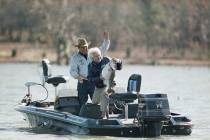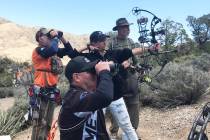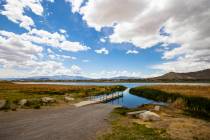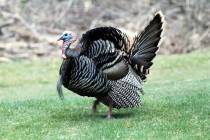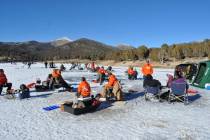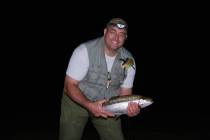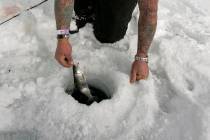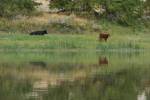Senate running out of time to pass Sportsman’s bill
Billed by many as the most important legislative package for the benefit of sportsmen in a generation, The Sportsman's Act of 2012 may have died Monday on the floor of the U.S. Senate when its members failed to agree on a procedural motion.
Introduced by Sen. John Tester, D-Mont., the bipartisan legislation is really a package of related bills that includes 17 provisions that would directly benefit anglers, hunters and the conservation of fish and wildlife resources. Among those is the Hunting, Fishing and Recreational Shooting Protection Act, which provides language clarifying that any component of any firearm or traditional ammunition, including bullets, shot, and other projectiles, and fishing tackle is not regulated by the Environmental Protection Agency under the Toxic Substances Control Act.
Driving the need for such language are lawsuits repeatedly filed by organizations such as the Center for Biological Diversity and other anti-hunting groups in an effort to force the EPA to ban traditional hunting ammunition made with lead components. To date, these court actions have not been successful, but with much of our legislation being created in courts these days rather than in the halls of Congress, one never knows.
According to the National Shooting Sports Foundation, a ban on ammunition made with lead components "would devastate hunting and shooting sports participation, drive up ammunition prices by almost 200 percent on average and dry up conservation funding." This is where I refer again to the Pittman-Robertson Act of 1937 and the financial contributions of sportsmen and recreational shooters to America's conservation efforts.
Another significant provision of The Sportsman's Act of 2012, formally Senate Bill 3525, would amend the Land and Water Conservation Fund Act of 1965 to require that 1.5 percent of the funding made available to the fund each year be used to "make public lands public." To do this, the funding in question would be used to purchase public access to federal lands in areas where such access is significantly restricted for hunting, fishing and other recreational purposes. Access would be acquired through establishment of rights-of-way or acquisition of land (or any interest in land) from willing sellers.
Such a program could significantly improve public access in such areas as the Ruby or East Humboldt mountain ranges, where private landholdings severely limit access to public land within those ranges. Of course, that would depend on finding landowners who are willing to sell land or establish rights-of-way across their property.
While these and other components of The Sportsman's Act would be of direct benefit to Nevada's sportsmen and wildlife, they may not come to fruition, at least not right away. Included in the bill are provisions calling for $14 million in additional spending, spending that led Sen. Jeff Sessions, R-Ala., to raise a budgetary point of order saying that, as written, the bill violates the Budget Control Act of 2011.
Democrats moved to waive the point of order, but that effort failed with a vote that primarily followed party lines. And that left the bill stuck in procedural limbo. Sessions assured his fellow senators that he likes the overall intent of the legislative package but wants the bill to comply with the budget.
Perhaps that leaves the door open for further negotiation and another vote. If so, maybe the bill can move forward with the provisions directly benefiting sportsmen left intact. But if it is going to make another run at passing The Sportsman's Act, the senate will need to move quickly.
Freelance writer Doug Nielsen is a conservation educator for the Nevada Department of Wildlife. His "In the Outdoors" column, published Thursday in the Las Vegas Review-Journal, is not affiliated with or endorsed by the NDOW. Any opinions he states in his column are his own. He can be reached at intheoutdoorslv@gmail.com.









